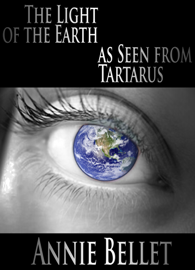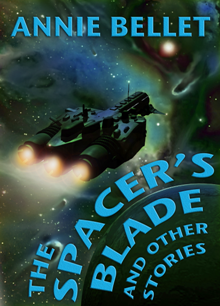All right. I’m going to take a stab at this issue. But first, a lot of caveats.
1) I don’t think that price, once under a certain threshold, matters as much as a lot of “indie” authors think it does. My personal feeling is that time is better spent writing more books and doing some targeted marketing (like sending out review copies) than messing around with price on books.
2) My personal threshold for ebooks is that the price be below the available paper version’s cost (ie if the book is out in hardback for 27, the ebook should be less than that (I prefer under 10 bucks, but I’ll pay up to 15 for an ebook I really, really want if the paper version costs more). If the book is out as a paperback for 7.99, the ebook should be less than that, say 6.99 or something). I am perhaps still clinging to my love of paper books on this, however. Personally, as someone who buys a good amount of books, that’s my threshold. If I want a book RIGHT NOW but it is two bucks more for the Kindle version than the paper one, well, I generally hold off and either order the book or go to a bookstore.
3) All that said, when you become a publisher, which is what putting your own books out yourself or with the help of a start-up small publisher (ie a conglomerate of your friends, which is what mine is), you do have to price your books somewhere and decide on a range and general guidelines so that you look consistent and your readers know what to expect. You have to pick a price with each new title and it helps, I think anyway, to have a basic idea of where you are pricing things.
4) Basically what I found is that ebook pricing varies a great deal and it varies a lot by genre (not as much by length, once you get away from short stories. I found plenty of novellas priced more or less the same as novels, for example). In an ink and paper bookstore, books are priced (unless on sale or sold used) by the format. A hardcover will always be in the 24.99-28.99 range no matter the genre. If I walk to the Mystery section and pick up a mass market paperback, it will likely be 7.99 (sometimes 6.99, but usually these days 7.99). I can then walk over to Science Fiction and pick up a mass market paperback and it will also be 7.99. Ebooks are different and I find that very interesting. I don’t know what it means yet, if anything, but I do think that I’ll be looking at pricing more by genre than any other factor.
So for my totally unscientific study, I decided to look at the genres I’m planning to put out books and stories in and see what the pricing looked like. First I checked the top 100 bestsellers in each category and marked down where the prices fell for those. Then I did a very, very rough general price look-up to see where the numbers of books in each price range fell in each genre. Again, these numbers were as of yesterday and are not exact. This is just a rough overview, not a deeply scientific study. All of these are Amazon.com only. I haven’t looked at B&N pricing, though I might, nor have I looked too much at Smashwords yet. So far all but one of my sales on my tester short stories have been through Amazon (Amazon.uk accounts for most of them, strangely. I guess they like literary short fiction?), so that’s what I studied first since for the moment, they still have a large portion of the ebook market.
Here’s what the rough breakdowns looked like:
Romance top 100: 43 books priced between .89 and 2.99, 27 books between 3.00 and 5.99, 19 priced between 6.00 and 7.99, 8 books priced between 8.00 and 9.99, and the remaining three priced over 10.00. The rough pricing distribution among all Kindle books in the Romance category was about 3,250 in the .99 to 2.99 range, 3500 in the 3-4.99 range, 4050 in the 5-9.99 range, and 1200 priced over 10.00. So the bestselling books are definitely weighted to the lower end of that, for whatever it means (correlation is not causation, after all).
Romance novellas (what I plan on writing, so I did this sub-category even though it isn’t really one even on Amazon) broke down roughly like this (I only looked at top 100 for this category): There were 18 novellas priced at .99, 7 novellas priced 1-1.99, 31 novellas priced 2-2.99, 17 priced 3-3.99, 11 priced 4-4.99, 7 priced 5-5.99, and the other nine were price over 6.00. These are of course a self-selecting category since if the publisher didn’t identify the book length as novella, it wouldn’t have shown up using the search parameters I used.
Mystery top 100: 36 books priced between .89 and 2.99, 6 books priced between 3.00 and 4.99, 22 priced between 5.00 and 6.99, 25 priced between 7.00 and 8.99, 8 priced between 9 and 9.99, and the remaining three priced over 10.00. The rough pricing distribution among all Mystery books on Kindle (and it is by far the biggest genre category I looked at) broke down roughly like this: 7,050 books priced .99 to 2.99, 6,400 priced 3-4.99, 7,100 priced 5-8.99, 4,700 priced 9-9.99, and 3,400 priced over 10.00 (the bulk of that priced between 10 and 20 dollars).
Police Procedural subgenre of Mystery top 100: 25 books priced between .89 and 2.99, 8 priced 3-4.99, 49 priced 5-7.99, 15 priced 8-9.99, and the remaining three over 10. The general pricing breakdown for all books listed under Police Procedurals was 546 priced between .89 and 2.99, 264 priced between 3 and 4.99, and the bulk of the rest priced in the 5-7.99 range. I wasn’t able to get good numbers on this due to the way I was searching (Amazon kept mixing in prices that weren’t in my search designation, probably due to their discounting? I’m not sure). My rough look though showed a great deal of the books in this category listed at 6.99 and 7.99.
Science Fiction top 100: 39 books priced between .89 and 2.99, 10 priced between 3-4.99, 29 priced 5-6.99, 19 priced 7-9.99, and three over 10. The overall breakdown was approximately 1,600 books between .99 and 2.99, 700 priced 3-4.99, 290 priced 5-6.99, 550 priced 7-9.99, and about 300 over 10.00.
Fantasy top 100: 29 books priced .89-2.99, 8 priced 3-4.99, 43 priced 5-7.99, 11 priced 8-9.99, and the remaining nine priced over 10.00. The overall pricing looked like this: 1,500 books priced .99 to 2.99, 1300 priced 3-4.99, 2,200 priced 5-9.99, 300 priced between 10 and 20.
So that’s the basic data I collected. My searches, other than the novella one, did not weed out short stories or take length into consideration at all. I looked at genre numbers and pricing and at the top 100 bestseller lists at the moment of the search. That allows for a lot of variance and other factors in this, but I just wanted a rough overview of pricing on ebooks.
What have I learned and/or decided? Genre does seem to matter. Science Fiction and Romance both had lower trending prices than the other genres I looked at. There also seems to be a strange “deadzone” in the 3-4.99 range on a lot of those top 100 lists that isn’t always reflected in the number of books priced there. Are readers avoiding books priced in that range? Could the .99-2.99 book buyers be a whole different set of buyers than the 5.00 and up crowd? I’ve noticed from looking at Amazon’s “customers who bought this also bought” sections that people who’ve bought .99 books tend to buy a lot of other .99 books. I’m not sure what that means, if anything, but I think it is interesting to think about. When I’m selling my books, who are my targeted customers? I joke with my friends that the only thing I look for in a reader is recidivism.
I think when I put books up for my small press, I’ll definitely be pricing by genre and using what I’ve found in this data to decide. For Romance, and specifically Romance novellas, it seems as long as I stay in the 2-4 dollar range, I’m right in the expected price range given the pricing of books on the bestseller list. For the Fantasy Police Procedural books (yeah, that’s crossing genres, yay ebooks and being able to put things under more than one category), I think I’ll aim for the 5-6.99 range. For straight mystery, probably aim at the same range. For Science Fiction the price trend seems lower, but I don’t want to be in the 3-4.99 deadzone either. More books in Sci/fi were priced in the 5-9.99 range than below 2.99 (48 vs 39), so I’ll probably take a chance and position the books on the lower end of the higher range. Short story collections seem like an all over the place no-man’s land and I wasn’t even able to get good data on them, so I’ll probably go with genre pricing on those.
Again, no one really knows how ebook pricing will shake out or where the various prices will settle. Length might become more of a factor, but it is difficult to see how long a book is on the Kindle. File sizes and location numbers can be way off based on things other than book length. I’m going to make sure that if a book is less than 45k words or so that the descriptions reflect this so a reader knows they are buying a novella or short stories, etc.
But in the end, the price matters a lot less than other things. If the books I publish aren’t any good and aren’t packaged well (good covers, good descriptions, good samples), they won’t sell at any price. That’s what I’m going to focus my energies on. More books, better books, great packaging.




